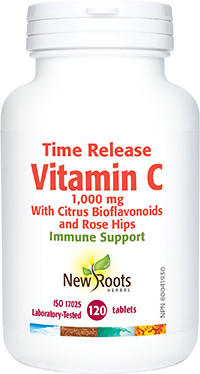-
Products
CategoryGender / Life StageHealth BenefitsRecommendedNew Products Amino Acids / Proteins Antioxidants Enzymes Essential Fatty Acids Exotic Skin Oils Functional Foods Glandular Extracts Herbs and Herbal Extracts Keto Diet Medicinal Mushrooms Probiotics Vitamins / Minerals50+ Health Children’s Health Gastrointestinal Conditions Maternity Men’s Health Women’s Fertility Women’s HealthBlood Glucose Management Cardiovascular Health Cholesterol Management Detoxification Digestive Health Energy Eye Health Hair / Skin / Nails Headache / Migraine Heart Function Immune Health Memory Help Metabolic Detoxification Mood Enhancement Muscle / Bone / Joint Health Neurological / Memory Health Neurological Health Oncology Adjuvant Therapy Pain and Inflammation Parasitic and Fungal Management Sleep Aid Sport Nutrition Stress / Mood / Sleep Stress Management Weight ManagementCough and Cold Don’t Let Pain Stop You! Let us solve the O‑MEGA problem! Essential Oils Cardiac Health Choosing Your Probiotics Boost Your Immunity Vitamin D Studies How Healthy is Your Prostate? How Is Stress Affecting You? Magnesium—A National Deficiency Choose to Care - Vitamin D to Ukraine Exotic Oils for Exquisite Skin Medicinal Mushrooms
- About Us
- Flourish
-
Stores
Time Release Vitamin C
Code 0933
UPC: 6-28747-10933-8
NPN: 80041930
Format: Tablets
Immune Support
Key Features and Benefits
- Helps metabolise fats and proteins
- Helps support immune function
- Helps in wound healing
Description
Pure ascorbic acid, USP grade, in powder form. An antioxidant for the maintenance of good health. Helps in the development and maintenance of bones, cartilage, teeth, and gums; helps the body to metabolize fats and proteins; and helps maintain immune function.
Did you know that vitamin C isn’t essential to all animals? However, it is for us, humans. It isn’t a necessary component of diet, at least for all mammals with the exception of guinea pigs, fruit eating bats, the red-vented bulbul bird, and primates—which includes us. All other species make their own.
They do this by converting glucuronic acid derived from glucose into ascorbic acid (C6H8O6). Three enzymes are required to make this conversion; one of these enzymes, or part of the enzyme system, is missing in primates. Irwin Stone proposed, in 1965, that a negative mutation may have occurred in these species so as to lose the ability to produce vitamin C. In primates, this is thought to have occurred in the region of 25 million years ago.
Unlike other vitamins, vitamin C is required in large amounts, which could only be supplied by a tropical diet high in fruit and other vegetation. If sufficient vitamin C could be obtained from such a diet, the quantity of glucose normally used to synthesize vitamin C could be channelled towards energy production. This could conceivably have been an advantage for primates or other species.
While a mere 60 mg a day can prevent scurvy, the deficiency disease first identified by Dr. James Lind in 1753, it would be illogical to assume that this is the optimal dose. A survey of doctors in the US found that those who were healthiest consumed at least 250 mg of vitamin C per day.
It is valid to infer from this brief history of evolution, a comparison with other species, and average excretion rates, that optimal vitamin C levels are probably above 1 000 mg, with plenty of room for individual variation.
What about “hard evidence”? What levels are required to ensure maximum function of enzymes and body systems dependent on vitamin C? A quick review of some of vitamin C’s hundreds of biochemical roles will help us here. Vitamin C is required for the synthesis of collagen, our intercellular glue that keeps skin, lungs, arteries, the digestive tract, and all organs intact. It is a potent antioxidant protecting against free radicals. Energy cannot be made in any cell, brain or muscle, without adequate vitamin C. The adrenal glands have a high concentration of vitamin C, which is essential for stress-hormone synthesis. Vitamin C is so central in so many chemical reactions in the body that, without it, life is simply not possible.
Directions of Use
Adults: Take 1 tablet daily or as directed by your health-care practitioner.
Duration of use: Consult a health-care practitioner for use beyond 2 months.
Ingredients
| Each tablet contains: | |
| Vitamin C (ascorbic acid) | 1,000 mg |
| Citrus bioflavonoids (from bitter orange [Citrus × aurantium]), 50% hesperidin | 150 mg |
| Rose hips (Rosa canina) | 50 mg |
| Other ingredients: Hyprolose, dicalcium phosphate, vegetable magnesium stearate, microcrystalline cellulose, silicon dioxide, and vegetable stearic acid, with a coating of polyvinyl alcohol, talc, polyethylene glycol, and polysorbate 80. | |
Warnings
Contains no: Gluten, soy, wheat, eggs, dairy, yeast, preservatives, artificial flavour or colour, starch, or sugar.
Cautions and warnings: Consult a health-care practitioner prior to use if you are pregnant or breast-feeding; or if you are taking any prescription medication.
Known adverse reactions: Hypersensitivity/allergy to Rosa canina, rose hip dust, its constituents, or members of the Rosacea family has been known to occur; in which case, discontinue use.
Disclaimer
| Code | Format | Size |
|---|---|---|
| 0270 | Tablets | 60 tablets |
| 0933 | Tablets | 120 tablets |
| 0934 | Tablets | 250 tablets |

